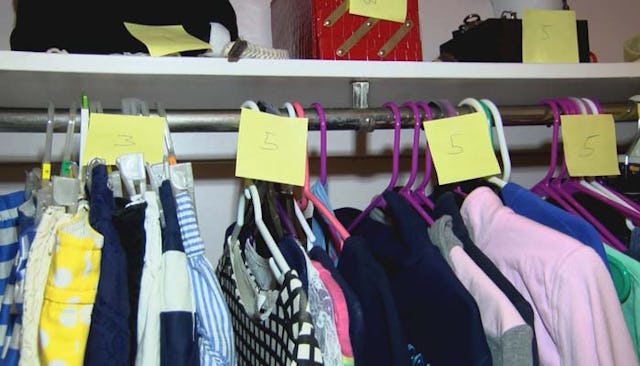Dad Takes Teen's Stuff Ransom After She Rings Up A $500 Phone Bill

A father of a 13-year-old who racked up a $500 phone bill thanks to Instagram data charges thought of a genius way for her to pay him back – work for it. Jared Cramer took a bunch of his teen’s treasured belongings ransom and put a “price tag” on them: each item required a different number of chores. He left her only with necessities like soap, deodorant and a few outfits.
The items were confiscated a week before the teen returned to school, giving her plenty of time to “earn” them back. Cramer chose to skip the traditional route of simply grounding his child, and opted to teach her the value of hard work and how that translates to money which in turn translates to the ability to buy things that you enjoy. Cramer told NBC, “She thought after I got that bill it was going to be a slap on the wrist, don’t let it happen again situation. But I think she’s been taking it pretty well.”
His daughter Julia has been waking up along with him, at 6:30 a.m. and getting to work. Her dad said she admitted, “you know what dad, I know you love me, I know I messed up, and I’m gonna work this off.” Good for her for realizing she screwed up and working to make it better.
Data charges get the best of even the most responsible adult, so it’s not surprising a snafu like this can happen. It’s just nice to see a no-nonsense and smart approach to punishment. It’s not about sending the message “you’re bad for doing this.” It’s about teaching the lesson that there are real consequences in life for certain mistakes. It’s important to teach the lesson that money doesn’t just sprout out of the blue: parents work hard for it. Not all 13-year-old’s have grasped the concept of work and reward. Julia knows that if she messes up again, she’s going to have to work to make it right.
It also wouldn’t hurt dad to figure out how to lock down the settings on his 13-year-old’s phone so this doesn’t happen again. Pretty sure Julia is going to keep a trained eye on her data usage from here on out, though.
This article was originally published on